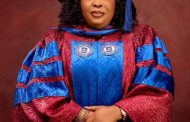By Saleh Bature
It is an open secret that senior secondary education in Nigeria suffers neglect for rather too long. The rot in the sector is mind-boggling and unimaginable. The question on the lips of education administrators and other stakeholders in education is, why the senior secondary education sub-sector, as important as it is in the education of our students and building a brighter future for our leaders of tomorrow, the teeming youth population should be neglected.
For too long, the environment in most of our public secondary schools is not conducive. The school ambiance is not attractive due to the absence or lack of functional libraries and laboratories. We are also bedevilled by the incongruous student-teacher ratio and high proliferation of unqualified teachers in our schools. Many students are taught in decrepit buildings with no seats and other basic tools needed to enhance teaching and learning, as it is in a traditional classroom setting.
Against the backdrop of this deplorable condition of the sector, Nigeria has witnessed a continuous rise in the growth of both private and public secondary schools in the country.

Prof Tahir Mamman, Nigeria’s education minister
Disturbingly, the senior secondary education sector has been left to function at the whims and caprices of individuals, organizations, and states for too long. The sector continues to expand with no defined regulatory body to regulate it, even though other levels of education; basic/junior secondary, Polytechnics, Colleges of Education, and Universities are supervised and regulated by the Universal Basic Education Commission (UBEC), National Board for Technical Education (NBTE), National Commission for Colleges of Education (NCCE), National University Commission (NUC) and Tertiary Education Fund (Tedfund), respectively.
This perhaps explains the reason Nigerians from all walks of life welcomed the establishment of the National Senior Secondary Education Commission (NSSEC), to serve as a regulatory and intervention agency in all the senior secondary schools in Nigeria.
Nobody appreciates and welcomes the establishment of NSSEC more than the governors of Nigeria. Apparently, the Governors’ support for NSSEC was made possible due to the ease with which states can qualify to benefit from the statutory senior secondary education fund. A paltry contribution of 5% counterpart contribution fund is needed by a state to access the fund.
If the many years of neglect and decay in senior secondary education in Nigeria is anything to go by, it will then be equally understood that Dr. Iyela Ajayi, the man at the helms of affairs at NSSEC, has a very difficult job.
The appeal for funding by the former ES of the commission, Professor Benjamin Abakpa, and the continuation of the same cry by the current head honcho, Dr. Iyela Ajayi, is instructive. The delay by the government to release the 2% senior secondary education fund, from the Consolidated Revenue Fund (CRF) is the greatest obstacle to the commission’s effort to achieve its mandate. It is hoped that the assurance by the ES that the Minister of Education, Professor Tahir Mamman, in conjunction with the Minister of state, Dr. Yusuf Tanko Sununu, are working in earnest on the 2%, will assuage the fears of skeptics
Indisputably, Dr. Iyela Ajayi is the best and the right person for the job because of his pedigree as the 2-term provost of Federal College of Education Okene, and recipient of the best-performing provost in Nigeria during his tenure. Not only that but Ajayi’s score-cards in the first four months as the ES of NSSEC justify his suitability for the job.
To his credit, NSSEC has developed a national strategic plan/ road map, developed minimum standards for senior secondary education, organized capacity-building workshops for teachers, promoted administrative efficiency, collaborated with the NERDC on validation of senior secondary education curriculum, collaborated with international development partners and completed the gazetting of NSSEC Act. He also reinforced due process, accountability, and probity in financial matters, among many other positive contributions.
Even though endowed with an uncommon passion for service, tremendous physical strength, and academic and administrative acumen, Dr. Iyela does not possess the magical wand to turn around the senior secondary education sector without adequate funding from the government. Iyela is akin to a sailor who is navigating through the darkness of the sea, beset by strong wind and storm without a navigating system. His situation is also similar to a soldier who is sent to fight an enemy on a war front without ammo.
I pray that two years after its establishment, the National Senior Secondary Education Commission will transcend the thorny issue of funding and swing into action to tackle the plethora of problems bedevilling the sector.
Saleh Bature who wrote-in this piece from Limpopo Street, Maitama, Abuja can be reached via baturesuba@yahoo.co.uk




























